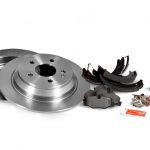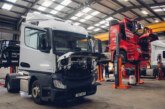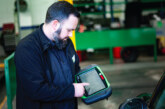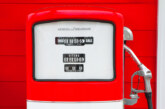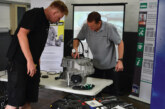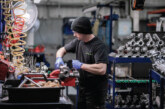James Addy, Car and LCV Product Manager at TMD Friction, discusses the rise in LCVs and the importance of research and development as a result, specific braking innovations and investment into follow-on testing.
Although the number of light commercial vehicle (LCV) registrations slightly decreased between 2016 and 2017, since 2012, the market has grown rapidly with more than 155,687 new vans taking to UK roads.
With registrations of LCVs rising in the UK, it is important to ensure vehicles are fitted with quality parts that are expertly engineered, easy to fit, and offer vehicles the longevity needed when making long journeys. Fleet operators and garages are under constant pressure to manage costs, so it can be tempting to fit budget products, but the advantages can often be short lived. Inferior brake pads will affect the overall braking performance of the vehicle, and potentially cause difficulties in other areas of the LCV as a result, so it’s always best to avoid this. Fitting poor quality parts can also lead to fleet operators incurring additional costs by fixing problems caused by inferior products.
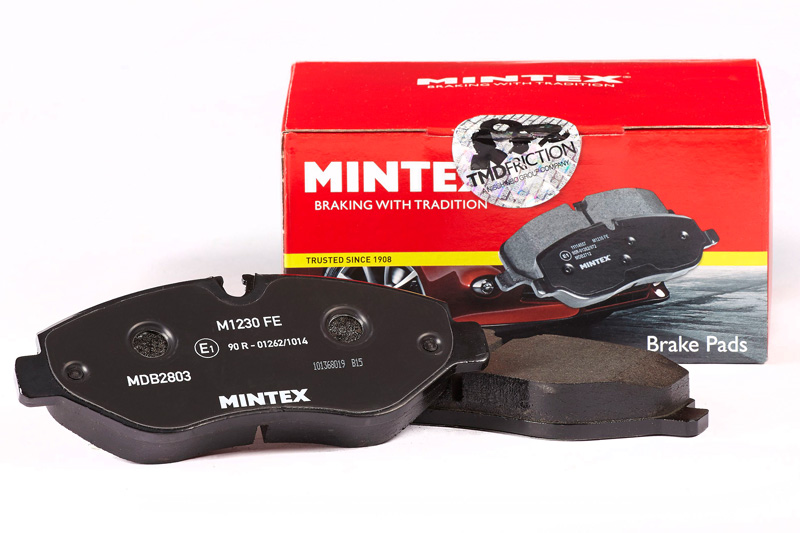
Research and development
But how can fleet operators ensure parts are up to spec? This largely comes down to purchasing products through a recognised supplier, produced by a trusted manufacturer that invests heavily into research and development (R&D). This is becoming ever more important as LCV registrations increase. As Mintex is part of global OE manufacturer, TMD Friction, it benefits from the company’s multi-million pound annual investment into research and development. This emphasis on R&D allows for the ongoing improvement of brake products, helping Mintex to advance the durability and quality of its ranges. Ultimately, it is this technology that increases the overall safety of the driver, while giving fleet operators and engineer’s access to the best products on the market.
A friction innovation that has undergone extensive testing, specifically for the LCV market, is TMD Friction’s M1230 material, which is a standard addition to all brake pads designed for LCV. The material has been developed to allow the pads to perform with increased efficiency, meaning they can withstand extremely high temperatures and excessive wear. This characteristic makes the pads perfect for LCVs that are on the road for long periods of time, as they need to be changed less frequently between service intervals. This ultimately saves fleet owners and drivers money and avoids vehicle downtime.
The development of M1230 does ensure that an LCV specific material is available on the market, but fleet operators are still often met with the inconvenience of having to purchase van parts from a variety of suppliers. A second development that offers a solution to this is the Mintex Van Kit, which comprises a full axle set including M1230 pads, discs and handbrake shoes, accessory kits and wear leads, along with a sachet of Ceratec all within one box. This not only provides a much-needed convenience to van fleet owners, it also saves time as well as money.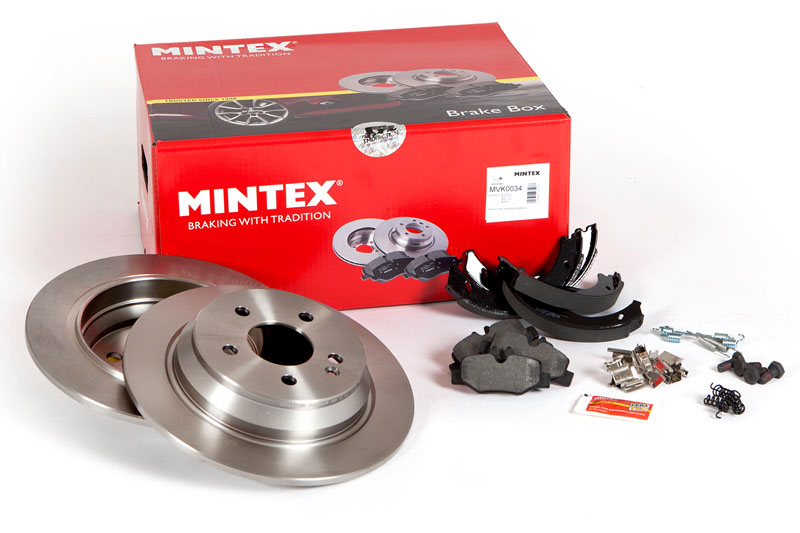
Tried and tested
The R&D process doesn’t just inform the research that goes into creating new products, but also the follow-on testing after manufacturing. A recent experiment conducted by TMD Friction demonstrated the performance of the M1230 material on a fleet of test vehicles, and compared it to a vehicle with OE pads and discs. With driving style taken into account, the M1230 test led to positive results and the material closely matched, and even exceeded, the OE material in three of the four cars.
Advancements, such as M1230 and the Mintex Van Kit, ultimately help operators exclude the need for inferior products, reaffirming the importance of using a trusted premium brand. It also helps operators understand that an advanced braking system will not only cut future costs, but offer the highest performance and safety levels. With the number of LCVs on UK roads rising, it is crucial new friction materials and convenience products are developed for the aftermarket to ensure the lifespan of the vehicle is protected.

